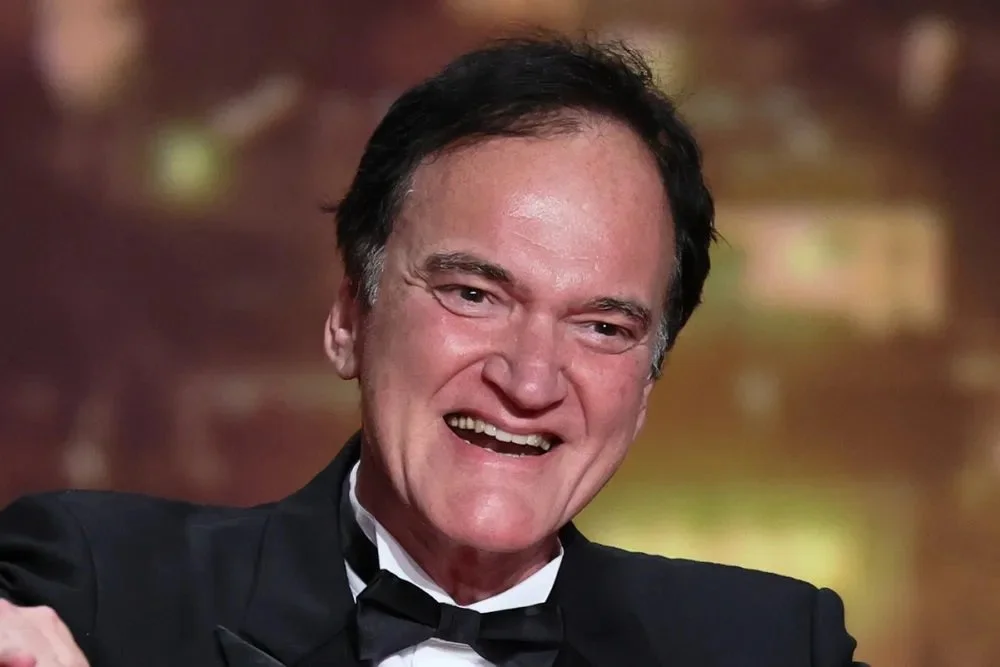
by Chris Peterson
Quentin Tarantino is writing a play. Just typing that feels like a plot twist. For three decades, his name has been inseparable from cinema: the whip-crack dialogue, the shocking bursts of violence, the monologues that build like symphonies of menace and wit. He is a director who has reshaped how we watch movies. And now he is stepping onto an entirely different stage, literally. Tarantino is bringing his first play to London’s West End.
As a fan, I cannot help but feel giddy about this. Tarantino has always been a playwright in disguise. Reservoir Dogs is essentially a chamber play filmed in a warehouse. The Hateful Eight could have been staged at the Almeida or Donmar, with its claustrophobic one-room set and characters unraveling in real time. Even Pulp Fiction, for all its cinematic fireworks, is full of theatrical monologues begging to be performed under a spotlight. His dialogue has always belonged to the stage. It is musical, layered, and combustible.
And now we get to hear it live, without the safety net of editing or the cushion of a camera angle. Just actors, an audience, and words sharp enough to slice the air. That is thrilling.
The choice of London over Broadway is already a story in itself. Tarantino has been upfront: Broadway is too expensive, too constraining, too burdened by commercial expectations. And he is right. Broadway has become a machine that often chews up originality in favor of spectacle. The West End, on the other hand, gives him the space to experiment. It is where risks are allowed to breathe, where an American auteur can arrive with something messy, daring, or brilliant, or maybe all three. Honestly, it feels perfectly Tarantino to take his first bow in London rather than New York. It is bold, a little rebellious, and completely unexpected.
As for the play itself, rumors say it might be a comedy. But Tarantino’s definition of comedy is unlike anyone else’s. His version could mean a drawing-room farce punctuated by chaos, or a Beckett-inspired satire with blood on the floor. He has even joked about staging a violent Waiting for Godot. Whatever it turns out to be, I think we can all agree on one thing: it will not be polite.
And that is why this matters. Theatre, for all its magic, can sometimes play it safe. Audiences know what to expect, producers stick to what works, and the thrill of danger, that sense of “what on earth am I about to see?” does not come along often enough. Tarantino changes that. He brings unpredictability. He brings heat. And perhaps most importantly, he brings new audiences. People who have never sat in a theatre might show up just to see what Quentin Tarantino does when he cannot cut away, when everything has to happen in the same room as the audience. That is the kind of cultural crossover theatre desperately needs.
For me, the appeal goes deeper. I want to hear Tarantino’s language hit the back wall of a theatre. I want to watch a live actor deliver one of his long, hypnotic monologues and feel the audience hold its breath. I want to see what happens when his sharpest instincts, tension, humor, and sudden eruptions, unfold without the buffer of film. The stage does not allow for retakes. It is immediate, vulnerable, and alive. That is where Tarantino’s words can be at their most dangerous and their most exhilarating.
We do not know the title. We do not know the cast. We do not know if this play will be a masterpiece or a glorious mess. But we do know that Quentin Tarantino is finally writing for the stage, and that alone is enough to make it the most exciting theatrical announcement of the year. Whatever happens when that curtain rises in London, it will be impossible to ignore.
And honestly, that is the gift of Tarantino. He does not always give us what we expect, but he always gives us something to talk about.
